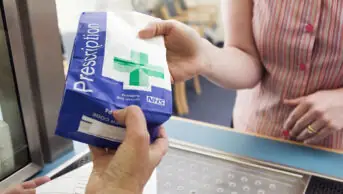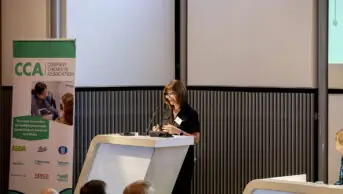
Shutterstock.com
The government has confirmed that a pilot of ‘Teach and Treat’ clinics that support pharmacists to become independent prescribers (IPs) is to be expanded across England.
The confirmation came in the government’s response to the House of Commons Health and Social Care Committee (HSCC) pharmacy inquiry, which was published on 10 January 2025.
In a letter published alongside the response, pharmacy minister Stephen Kinnock described the ‘Teach and Treat’ pilot — which was implemented in the south west of England in 2023 — as “an effective way to create designated prescribing practitioner (DPP) capacity and grow the number of pharmacist IPs”.
There have long been concerns over the number of DPPs available to support the switch to all newly registered pharmacists qualifying as IPs from September 2026.
Commenting on the extension, Brendon Jiang, vice chair of the Royal Pharmaceutical Society English Pharmacy Board, said: “The south west pilot was a great success, demonstrating the significant potential to enhance DPP capacity and support the development of pharmacist independent prescribers.
“While the lead times mean this expansion may not directly impact DPP capacity for the newly qualified pharmacists of 2025/2026, it is an important step forward in strengthening the pharmacy workforce and ensuring we can meet future demands.”
The two-year ‘South West Teach and Treat Pilot’ was funded by Health Education England in the first year and is currently funded by NHS Devon for the second year.
Commenting on the extension, Victoria Webb, independent prescribing clinical lead and strategic lead for Devon Teach and Treat, said the challenge was to enable the pharmacists graduating the course to practice as IPs.
“As far as I’m aware, none of the pharmacists that I’ve supported to get their prescriber qualification are actually using it,” she added.
“It’ll take time before they can use that qualification and further time before they can function as a DPP. So, we’re a few years out from a community pharmacist from ‘Teach and Treat’ functioning as a DPP.”
The government’s response to the HSCC inquiry, published in May 2024, accepted many of its 18 recommendations, including reporting that it was currently “examining options” for pharmacists to “enable further flexibility to supply an alternative dose or formulation to what was prescribed without going back to the prescriber”.
The government also said it would “keep under consideration” an independent review of the medicines supply chain; that the National Institute for Health and Care Research evaluation of Pharmacy First will review the effectiveness of GP minor illness referrals to community pharmacy; and that a review of the ‘Independent prescribing in community pharmacy pathfinder programme‘ will be published in 2025.
In addition, the government rejected recommendations to create a new “establishment payment” to support the development of consultation spaces for patients and to provide free over-the-counter medicines as part of Pharmacy First.


